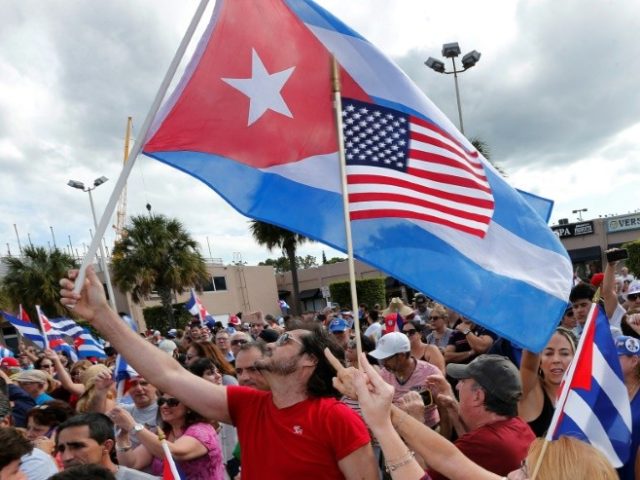Washington (AFP) – Senior advisers to President-elect Donald Trump promised on Sunday that he would strike a “better deal” with Cuba after Fidel Castro’s death, without saying how this might affect the historic rapprochement under President Barack Obama.
While prominent Republicans have blasted Castro as a murderous tyrant since his death Friday, no one close to Trump has directly threatened to end the political opening announced in 2014 by Obama and his Cuban counterpart Raul Castro.
But Trump’s advisers made clear Sunday that the outgoing Democratic administration had, in their eyes, made too many concessions to Havana — notably by easing the US economic embargo of 1962 — without receiving enough in return in areas like human rights, democracy and a free-market economy.
“We’ve got to have a better deal,” Trump’s chief of staff, Reince Priebus, said on Fox News Sunday.
“Repression, open markets, freedom of religion, political prisoners. These things need to change in order to have open and free relationships, and that’s what President-elect Trump believes,” he added.
Priebus said Trump would ensure that “there isn’t going to be a one-way relationship from the United States to Cuba without some action from the Castro administration.”
– ‘Nothing in return’ –
Trump strategist Kellyanne Conway also denounced the Obama administration for having gotten “nothing in return” from Cuba since diplomatic relations were restored in the summer of 2015.
She said Trump might reopen talks with Cuba, but that it would have to be with a “very different Cuba,” one that ended acts of repression and moved to free political prisoners.
Even Republican Senator Marco Rubio of Florida — an outspoken Castro critic whose parents fled the island years ago — was evasive when a CBS interviewer asked whether Trump might move to roll back Obama’s opening to Cuba.
“There are key elements that are more important than others. So we’ll look at all of them,” said Rubio, who lost to Trump in a bitterly fought race for the Republican presidential nomination.
“I am not against changes in US policy towards Cuba,” he said. “I just want to make sure that those changes are reciprocal.”
But if the incoming president’s advisers were careful not to suggest an end to the rapprochement with Cuba, they held back no punches when it came to talking about Fidel Castro.
Conway blasted him as a dictator responsible for “60 years of oppression.”
Trump on Saturday called him a “brutal dictator” with a legacy of “firing squads, theft, unimaginable suffering, poverty and the denial of fundamental human rights.”
– The ‘tyrant Castro’ –
Vice President-elect Mike Pence tweeted on Saturday: “The tyrant #Castro is dead. New hope dawns.”
Trump, during his election campaign, did little to flesh out the rather vague contours of his Cuba policy.
The New York billionaire had, in early 2015, supported the warming of relations.
But once his campaign was under way he expressed greater skepticism, saying Obama had obtained far too little in exchange for easing the US embargo and adding, last month, that he would do “whatever you have to do to get a strong agreement” with Havana.
The death of the father of the Cuban revolution, who defied the northern superpower through 11 US presidents, comes amid a sometimes rocky transition of power in Washington.
Obama, who will step down as president on January 20, offered a cautiously worded statement Saturday on Castro’s death, calling him a “singular figure” and adding that history would “judge the enormous impact” he had on Cuba and the rest of the world.
During an historic visit to Cuba in March, Obama pleaded for making the process of normalization irreversible, while conceding that the relationship “will not be transformed overnight.”
“A better approach for the incoming Trump administration,” said Ted Piccone, a scholar at the Brookings Institution think tank, “would be to maintain President Obama’s policy of constructive engagement and work with the post-Castro leadership to protect US national interests in a more stable, independent, and open Cuba.”

COMMENTS
Please let us know if you're having issues with commenting.